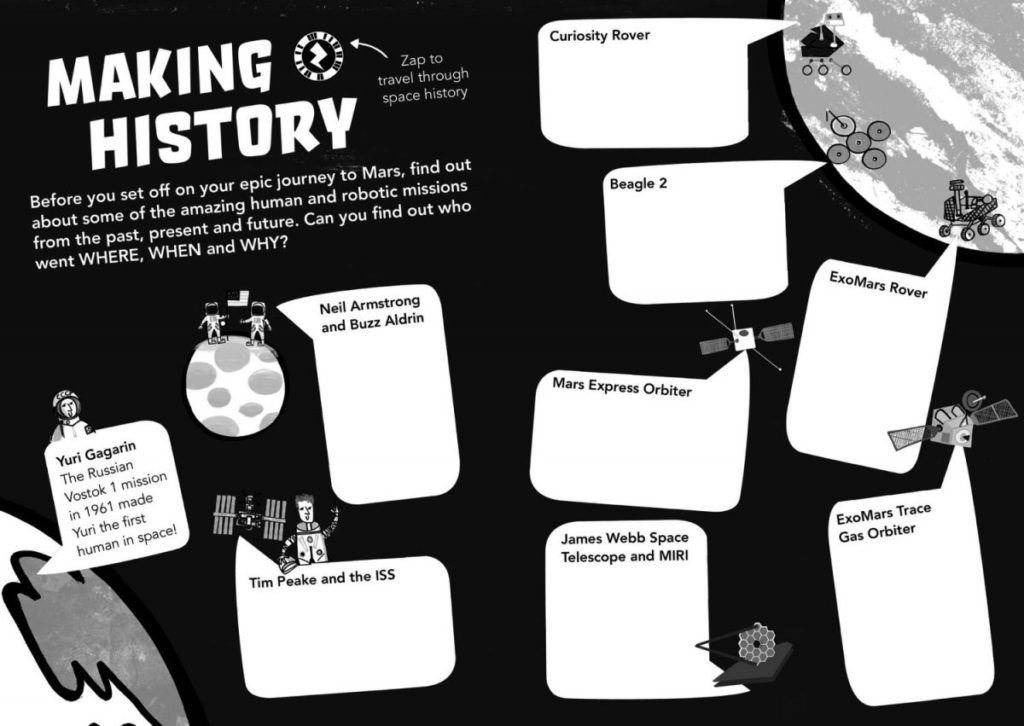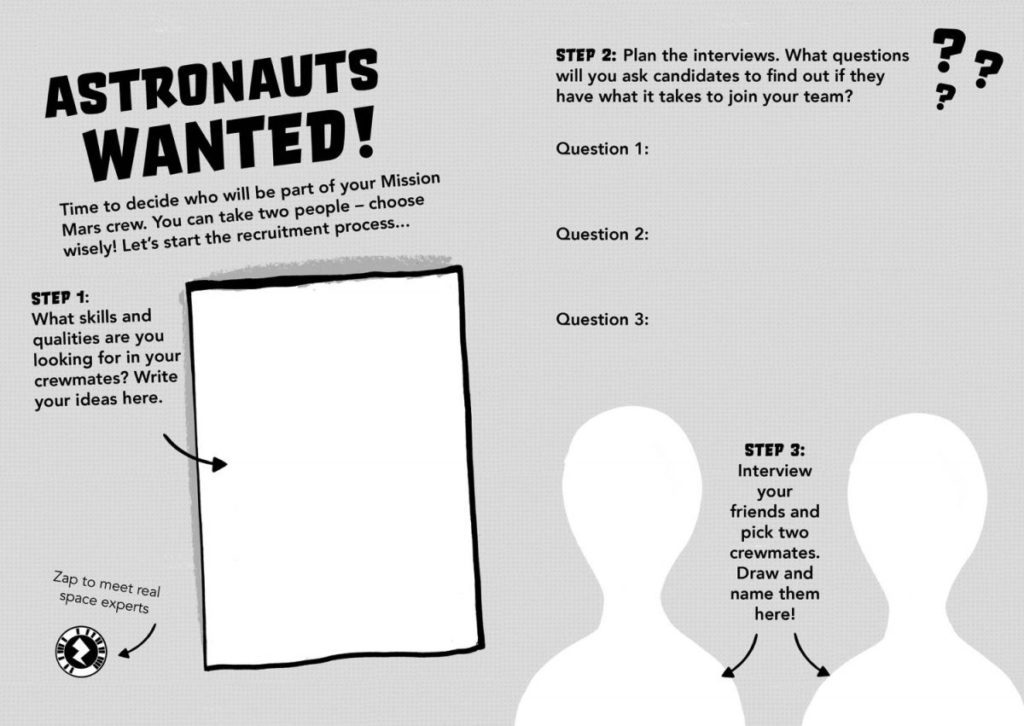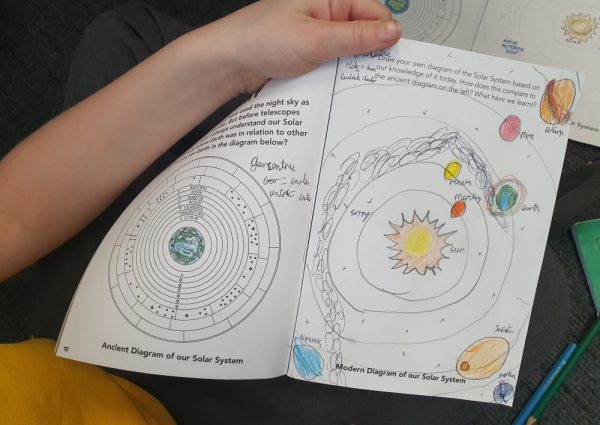Each activity combines a STEM topic with another subject such as English, Art/Design, Geography, SMSC. This cross-curricular approach makes STEM accessible for students who may not have confidence in this area, and gives you flexibility to incorporate the materials into different parts of your own curriculum or learning plan, such as English and Literacy.
Throughout the Mars Diary we’ve linked STEM with various writing challenges to help boost your students’ literacy, communication, hand-writing and imaginative skills. As a teacher the writing resources can be used as a way for you to judge how individual students are grasping the topic and retaining an understanding of the materials learned. Sending these activities home to be used as home-learning exercises also provides a wonderful way to engage parents in what is being taught in the classroom.
Let’s take a look at the writing-based activities in the Mars Diary.
Making History
This activity focuses on the history of space exploration, both human and robotic, and allows students to understand the progress made in terms of space travel over the past 70 years.
Letter to Tim
This activity combines several factors – firstly, the incredible inspirational figure of Tim Peake and the way he has managed to engage the imaginations of school children across the UK with space travel. Secondly, it provides an opportunity for students to write creatively and persuasively and thirdly, it requires student to do some basic research into the issues involved in interplanetary travel.
Astronauts Wanted
This careers activity invites students to think about the skills, knowledge and experience people might need to go to Mars. Use this activity as a PSHE resource by encouraging students to think about their relationships with others, how to manage risk and make good decisions, and the benefits of having a range of personalities within a collaborative team.
Breaking News
The discovery of water on Mars gives scientists their clearest sign yet that there may be life on Mars – both now and in the past. Students will need to think about the Martian past and how the planet has changed over time as well as considering the importance of water to life and why scientists believe water is such a key part of discovering life on another planet.
Planet X
This creative activity lets students use their imagination to create a comic about an adventure set beyond the Red Planet. Students could think about before hand what kind of life might be out there on other planets and the similarities it might have to things on Earth.
Space Glossary
This final activity in the Mars Diary is an opportunity to bring together all of the new specialist vocabulary that students have acquired throughout the programme. Here they can document the words they’ve learned in the Word Searches and choose their favourites to create a rap, song or spoken word poem. End your Mars Diary programme with a concert!
Word Searches
At the end of each chapter in the Mars Diary, students are challenged to complete a word search, but there’s a catch! The words to be found aren’t listed, only the first letter. Figuring out what the words could be requires students to go back through the chapter and write down words in their Space Glossary. Asking the students to reflect back on each chapter like this reinforces the lessons and boosts the new vocabulary from short-term memory to long-term memory.










